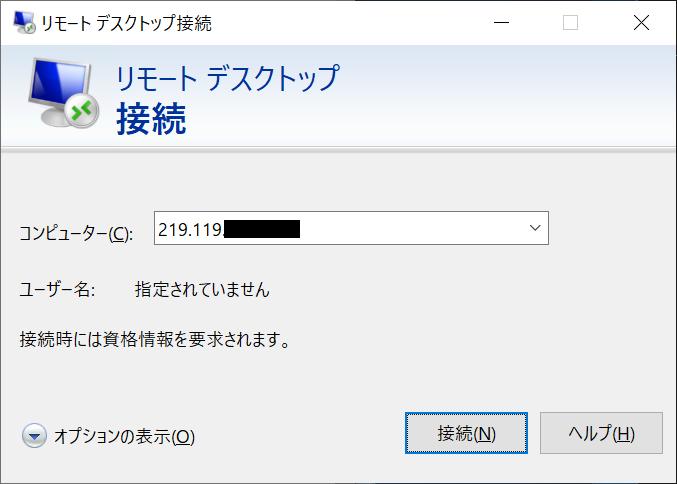Actor Yoshie Ichige cared for her mother for nearly 13 years after suffering a stroke. At first, he had a strong feeling that she was the only daughter, so I had no choice but to do my best, but gradually he began to rely on the people around him. She says that she realized the importance of people other than her family being involved in nursing care. What kind of change did you have?
[Nursing care that doesn't give it all, What my mother left behind] Click here for an interview with Yoshie Ichige (below)
The power of nature that I felt while nursing my mother
Mr. Ichige's mother had a stroke in 2004 and 2005. Just when she had finished her work and wanted to immerse herself in her hobby of mountain climbing, her mother's care centered life began. I faced the aging of my parents with the help of the patients and their parents who shared the same room at the hospital and the presence of nature.
In January 2005, my mother had her second stroke. While she was in the hospital, she fell out of bed and suffered a serious injury that broke the bone at the base of her leg called the femoral neck. I couldn't have an operation for the fracture right away because I was sick. I was bedridden for about 10 days, so I temporarily lost track of who I was.
At this time, we were in a room for 6 people, but I learned a lot from the "daughters" who were also accompanying their parents. One daughter was talking to her mother about politics, elections, and many other things.
While listening to it next to me, I thought to myself, "Mother is barely conscious, and she wouldn't understand if I spoke to her like that." Even so, he watched TV every day, told him, "(Junichiro) Koizumi said this," and took him outside in his wheelchair.
While doing so, the mother's expression gradually appeared. She taught me that if she doesn't learn to speak to her, she will get better. It was a cold season, but when I took my mother out to the hospital garden, she became more and more energetic. Feel the sunshine and wind, smell the scent of flowers. I felt that it was very important to be stimulated by the five senses naturally.
I realized the importance of nature many times through taking care of my mother. Even when my mother barely opened her eyes, she could hear the children playing and smell the flowers, and on those days she ate more dinner than usual.
Home nursing care that started with ``I may only live a few more years''
My mother returned to her home in Tokyo about half a year after going through rehabilitation. My mother and I originally lived together in this house, but since it was a complete two-family house, we lived separately from each other. It was a detached house on a slope, with a semi-basement and a mezzanine floor, and no elevator. I thought, "I can't live with my mother here," so I took the plunge and bought an apartment.
In the apartment, there was a partition (screen) and a sofa by my mother's bed, and I woke up there. I concentrated all my attention on my mother's presence so that I could respond immediately when she called me "Hey!"
However, on that first day, my mother fell while trying to go to the bathroom and was hospitalized, and I regretted having a separate bedroom.
When I started nursing care, I vaguely thought, "My mother may only live a few more years," so I lived a life centered on my mother. The only time I go out is when I go to work. My work hours are irregular, so I didn't use the services of the long-term care insurance system. There was also a consciousness that "I have no choice but to do my best alone."
The signs of people's lives and the natural atmosphere that my mother missed
Mr. Ms. Ichige realizes that it was important for her mother to have familiar neighbors and feel the presence of people and nature.

I intended to demolish the original detached house and sell it, but after a while after moving to the apartment, my mother said, "I want to go home," so I decided to rebuild it. She thought, ``My mother may not be able to live until the house is completed, but if I build a house where she can live, it will be a house that I can return to even when I am old.''
I was able to fulfill most of my mother's wishes for a barrier-free, bright house with lots of wood and glass. ” and was very pleased.
Actually, I enjoyed living in an apartment more than living in a detached house. I was able to talk about various things with the residents, and I was able to create a community. But my mother kept saying, "I'm sorry." Come to think of it, my mother can't go out alone, so she doesn't see many people who live on the same floor. Even if there were a lot of people living around me, if I couldn't meet them, it was the same as if they weren't there.
When I returned to the original house that had been rebuilt, my mother had many friends in the neighborhood that I didn't know. When I was walking around my neighborhood, people I didn't know would often say, "I'm friends with your mother."
I could hear the voices of passers-by and children, the sound of the wind, and the smell of plants and soil coming up from the ground. Even though I lived on the second floor of an apartment, I didn't really feel that kind of thing. Is it because the outside is all hardened with concrete and it is highly airtight? Now I understand why my mother was mad at me.
"I've become a person to worry about."
Mr. Ichige's work had reached a turning point after nearly five years of nursing care for his mother. Realizing that she had lost her emotional balance, Ms. Ichige began relying on others and began using long-term care insurance services.
Around 2008, when I was 58 years old, the work that had continued up to that point came to an end. It was also a time when my own role was changing, and it was also a time when the TV station people I had been working with up until now were retiring. Although I was able to spend more time caring for my mother than before, I was very worried that if I devoted myself solely to caring for my mother, I might end up with nowhere to belong.
At that time, my mother suffered a mild stroke and was hospitalized. She felt that she was "in a similar situation to when her father died." The season when I was hospitalized was also the same autumn. I never thought I would die, but my father passed away about two months after being hospitalized.
I'm going to be bored at work and have no place to go home."
I had a friend who was taking care of her mother like me, but her mother passed away while she was in the hospital. I imagined her friend's loss and thought of it as my own. When I sent a condolence email to that friend, the friend who read the letter worried, "Are you all right?" At that time, I realized that my state of mind might be strange.
The nurse at the hospital where my mother was taking care of me in rehabilitation was also concerned about my situation and recommended me to meet with a medical social worker. I cried for three hours during that interview. "You should live your own life. Think about your mother after creating your own life. Unfortunately, your mother is dying. You must not die together." I was told something like this.
It was around this time that actor Yukiko Shimizu (age 49), who had retired from the entertainment industry to devote herself to caring for her mother, took her own life, so people around her were really worried about her. I thought, ``I've become the one to worry about. Even if I lose my job, I'll rebuild my life.
First, I called out to various people in my neighborhood and found someone who would cook my mother's meals and watch over them. Until then, I used to come home from work to cook meals for my mother and then go back to work. I took care of him for about five years, and after that I met another person who took care of my meals.
When I started nursing care, I had a strong feeling that I had to do everything for my mother. Her mother is from a generation that has a strong sense of embarrassment when strangers enter the house, so I think she thought, "You, her daughter, do it." My work hours are irregular, and it's hard to ask someone in advance, so I had no choice but to do it by myself.
However, my mother was relatively open to the words of people she met while in the hospital, so even though she said "I don't like it", she gradually began to go to day care services and short stays. I was. When I myself think about my age and the future of my work, I gradually came to understand that "people will surely die. Don't pour everything into the lives of people who are leaving."
In this way, until my mother passed away in 2016, I took care of her for about 5 years, successfully combining home care and short stays. Thanks to that, I was able to perform on stage where my schedule was filled for about two months between rehearsals and performances.
(photo by Nanako Ito)
(Costume cooperation)
・Jacket, Tops, Skirt = YUKIKO HANAI (Hanai Co., Ltd. 03-6738-4877)
・Earrings=Abiste (Abiste Co., Ltd. 03-3401-7124)
・Others = stylist's personal items
◇
This project is being implemented as a project to disseminate the charm of nursing care in 2021 (a project to disseminate attractiveness by target). (Implementing body: Asahi Shimbun, Ministry of Health, Labor and Welfare subsidized project)

![EVsmart blog Toyota's electric car "bZ4X" that makes you feel comfortable with electric cars and quick chargers / No% display of battery level [Editorial department] Popular articles Recent posts Category](https://website-google-hk.oss-cn-hongkong.aliyuncs.com/drawing/article_results_9/2022/3/9/752542064665dc2bd7addbc87a655694_0.jpeg)
![Lenovo's 8.8 inch one-handed tab "Legion Y700" full specs released! [Is the price in the 40,000 yen range?]](https://website-google-hk.oss-cn-hongkong.aliyuncs.com/drawing/article_results_9/2022/3/9/207e1be231154e91f34c85b4b1d2126c_0.jpeg)

